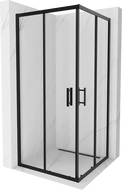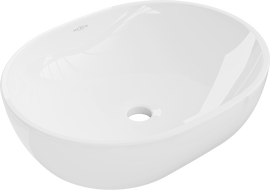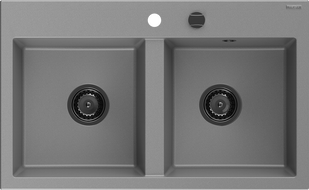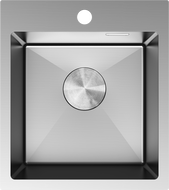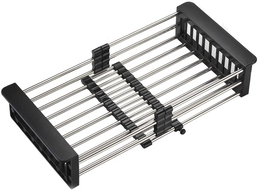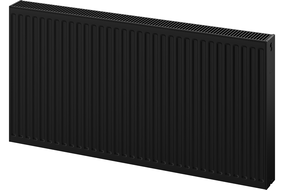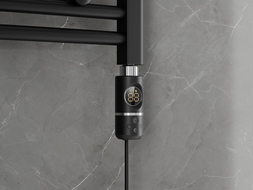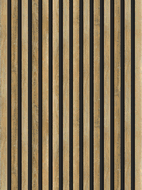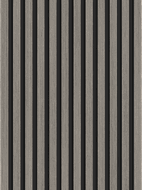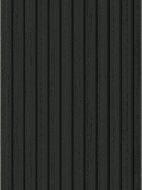
We put fruit and vegetable peelings into the biodegradable waste bin, plastic packaging into recyclable waste, paper into paper waste, but what do we do with used oil? Frying chips, juicy steaks, or even ordinary cutlets involves the use of a considerable amount of rapeseed oil or any other oil. Apart from dietary concerns, the oil left after frying can cause quite a few problems when it comes to disposal. So, can you pour it down the kitchen sink?
Used Oil – What to Do with It?
Used fat in many cases can be easily reused, provided, of course, it's not burnt. Once the oil has completely cooled down, it can be poured into a jar or bottle and stored for later use. The oil should be kept in a shaded place or in the fridge. If the oil contains food particles, it's a good idea to strain it through a fairly fine sieve beforehand.
Another way to use up used rapeseed oil is to use it to make original oil lamps. You can find plenty of such inspirations online, and some people manage to utilize used oil from frying chips in even more interesting ways – by making homemade soap. This is a great idea if you like such solutions and have plenty of used oil at your disposal. It can also be used to impregnate kitchen boards, and even ... fence boards.
How to Get Rid of Oil After Frying?
If you don't feel like dealing with reprocessing used oil and it's no longer suitable for reuse in frying, you have many options to safely dispose of it. Of course, you absolutely cannot pour oil into the sink or the toilet, why not learn from a little later in this text. If not into the sewage system, then where exactly to dispose of oil after frying? The way to dispose of oil largely depends on the quantity. In typical households, it's not much of a problem, you can pour it into a bottle and throw it into the mixed waste container, a smaller amount can simply be wiped from the surface of the pan with a paper towel and thrown into the mixed waste.
In gastronomy, where a lot of oil is collected after frying, it should be stored in a tightly closed container. Once an adequate amount is collected, it's possible to donate the fat for reprocessing – interestingly, this can be treated as a tax-deductible donation. Alternatively, special containers containing fat can be handed over at PSZOK points or collected by a company specializing in the reuse of oil. It's used, for example, to produce fuel, of course, after appropriate processing.
Why Can't You Pour Oil Down the Drain?
After frying, remember that under no circumstances can you pour oil into the drainage pipes in the kitchen sink or into the toilet bowl. Frying oil can be reused or disposed of safely. For many people, the most convenient method is to pour the contents of the pan into the sink, but it's a very bad idea, especially if you do it with still hot fat. The heated leftover frying oil can damage the plastic parts of the drainage system, including the siphon or a section of the drainage pipe. The melted plastic will be suitable only for replacement.
The second reason why you shouldn't pour frying oil into the drain pipes is the possibility of completely clogging the pipes. Food remnants in the cooling fat can stick to the walls of the drain pipes and gradually decrease their light. Over time, they can effectively plug up the pipe. A thick and hard layer of fat can prove very difficult to remove using standard methods. You will need to use aggressive chemical agents or seek the assistance of professionals with appropriate tools for unclogging the drain. Pouring melted fat into the sink may be convenient, but it can lead to consequences requiring significant financial outlays.
What to Do with Used Oil – Summary
In a perfect world, frying oil would just disappear, and we wouldn't have to worry about its disposal. However, in the real world, used oil can become a problem, especially if you have too much of it. However, we have come to certain conclusions about what can be done with used vegetable oil. If you are a DIY enthusiast, you can turn used oil into oil candles or homemade soap. If the frying oil hasn't burnt and doesn't contain many residues – it can be reused in the kitchen.
If you have frying oil in wholesale quantities, arrange for its collection by a qualified company that will use it for reprocessing. Such fat can, for example, be used to impregnate wood. Any method of getting rid of the oil is good, as long as the used oil doesn't end up in the sewage system, pouring it into the sink is the simplest recipe for a solidly clogged drain.

